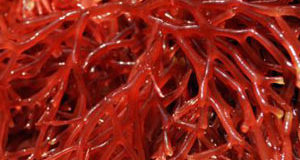Milk is a rich source of the minerals, calcium and phosphorus that our body needs to build and maintain strong bones and teeth and assist in the proper muscle contraction. Milk is also a valuable source of high quality protein which complements the protein value of breads and cereals. It also provides fair amounts of vitamins A, B, and D, all of which help promote proper growth and development but, to make milk an integral part of your daily diet, you need the real stuff. Real milk is from a cow which is nursing a calf and grass-fed. Even so, do not drink a glass of milk everyday to ensure strong and healthy bones or build our defense against osteoporosis and other bone disorders in our twilight years – This is a FALLACY – milk actually draws calcium from the bones in later years to balance the healthy acidity which drinking milk offsets. Take a second look and develop a firm opinion of milk as food once more.
Correct Those Wrong Ideas about Milk
Are you one of those who believe that milk is a perfect food? Or are you one of those who have stopped drinking milk because of certain beliefs you have associated with milk? If so, it’s about time to correct these wrong ideas about milk or its products. Milk is a rich food that humans can use periodically, not every day. There are vegetable sources which are many, many times more nutritious; for example, almond milk is five times more calcium rich than cows milk. Milk, is not nearly a complete or perfect food as others tend to believe; just compare to spirulina, oats, buckwheat. The truth is no single food contains all the nutrients our body needs. Milk contains negligible amounts of vitamin C, niacin and iron. Thus, an individual needs other food sources for a more adequate daily supply of these important nutrients. Cancers like milk; google its link to cancers. Don’t take my word for it – search in Harvard, Johns Hopkins and other top public health research entities about the mitigation of milk in the diet.
Other people avoid drinking milk in the belief that this makes them fat. Milk fat contributes to cholesterol issues and vascular disease but in small amounts it can help the micronutrient transport within cells. From Harvard School of Public Health (HSPH): “Calcium is important. But milk isn’t the only, or even best, source. ……high intake can increase the risk of prostate cancer and possibly ovarian cancer. Plus, dairy products can be high in saturated fat as well as retinol (vitamin A), which at high levels can paradoxically weaken bones”.
5 Quick Tips: Building Strong Bones
1. Look beyond the dairy aisle. Limit milk and dairy foods to no more than one to two servings per day. More won’t necessarily do your bones any good—and less is fine, as long as you get enough calcium from other sources. Calcium-rich non-dairy foods include leafy green vegetables and broccoli, both of which are also great sources of vitamin K, another key nutrient for bone health. Beans and tofu can also supply calcium.
2. Get your vitamin D. Vitamin D plays a key role along with calcium in boosting bone health. Look for a multivitamin that supplies 1,000 IU of vitamin D per day. If your multi only has 400 IU of vitamin D, consider taking an extra supplement to get you up to 1,000 IU or 2,000 IU per day. Some people may need 3,000 or 4,000 IU per day for adequate blood levels, particularly if they have darker skin, spend winters in the northern U.S., or have little exposure to direct sunlight. If you fall into these groups, ask your physician to order a blood test for vitamin D. Read more about vitamin D in the vitamins section of The Nutrition Source.
3. Get active. Regular exercise, especially weight-bearing exercise such as walking or jogging, is an essential part of building and maintaining strong bones.
4. Be careful about getting too much retinol (vitamin A). Don’t go overboard on fortified milk, energy bars, and breakfast cereals, all of which can be high in bone-weakening vitaminA. Many multivitamin makers have removed much or all retinol and replaced it with beta-carotene, which does not harm bones.
5. Help your kids build strong bones. Youth and young adulthood is the period when bones build up to their peak strength. Helping youth lead a bone-healthy lifestyle—with exercise, adequate calcium, and adequate vitamin D—can help them keep strong bones through all their adult years.
Good, non-dairy sources of calcium include collards, bok choy, fortified soy milk, baked beans, and supplements that contain both calcium and vitamin D (a better choice than taking calcium alone).
Milk has the protein casein in it. Casein fits into the receptors which opiates (morphine, heroin, oxycodone, fentanyl, etc.) fit into and stimulate a sense of well-being and pleasure. This is partly why milk and cheese is difficult to wean off of – we get a ‘high’ from it.
Goat milk is Nutritious: Goats milk is a good source of protein, contains less sugar (lactose), 13% more calcium, 25% more vitamin B6, 47% more vitamin A, and 134% more potassium than regular cow’s milk.
While it’s not very popular in the Western world, goat milk is actually one of the most widely consumed milk drinks in the rest of the world and with good reason — it tastes great and it’s chock-full of nutrients.
Just check out these stats too:
- Calories: 168
- Saturated Fat: 6.5 grams / 33 percent DV*
- Carbohydrates: 11 grams / 4 percent DV
- Protein: 10.9 grams / 4 percent DV
- Cholesterol: 27 milligrams / 9 percent DV
- Sugars: 11 grams
- Sodium: 12 milligrams / 5 percent DV
Minerals
- Calcium: 327 milligrams / 33 percent DV
- Phosphorous: 271 milligrams / 27 percent DV
- Magnesium: 34.2 milligrams / 9 percent DV
- Potassium: 498 milligrams / 14 percent DV
- Copper: 0.1 milligrams / 6 percent DV
- Zinc: 0.7 milligrams / 5 percent DV
Vitamins
- Vitamin A: 483 IU / 10 percent DV
- Vitamin B2 (Riboflavin): 0.3 milligrams / 20 percent DV
- Vitamin C: 3.2 milligrams / 5 percent DV
- Vitamin D: 29.3 IU / 7 percent DV
Source by Daniel Szalok, HSPH, Dr. Axe and others
 Vitamin Agent The Health & Naturalistic Source
Vitamin Agent The Health & Naturalistic Source





